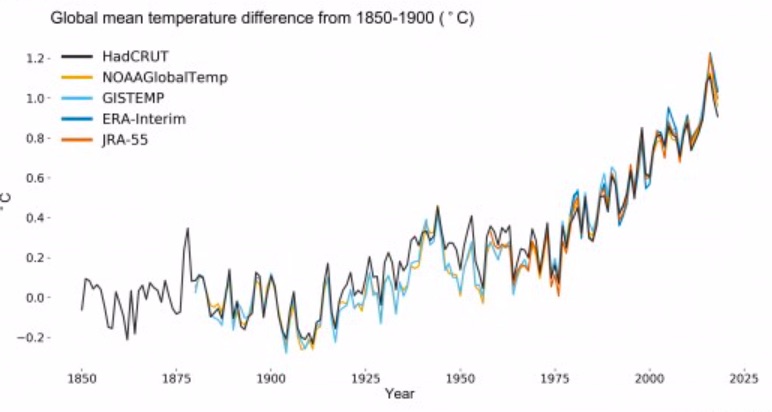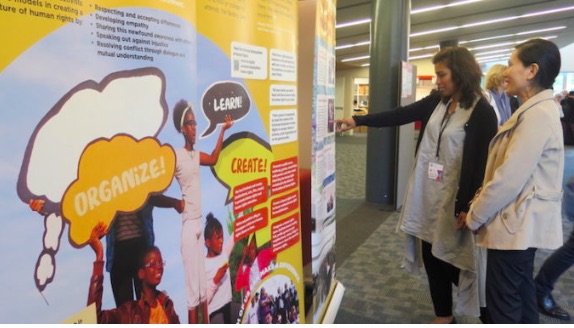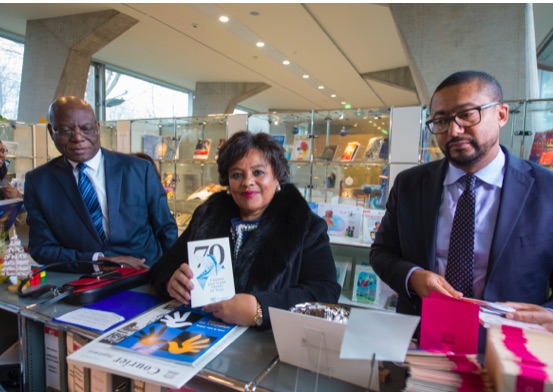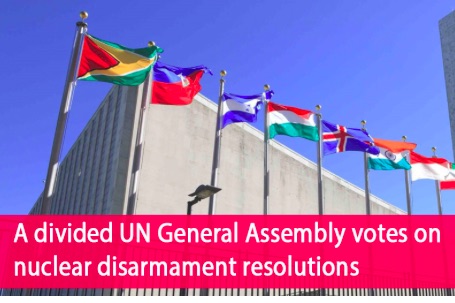. WOMEN’S EQUALITY .
An article from UN Women
Under-Secretary-General of the United Nations and Executive Director of UN Women, Phumzile Mlambo-Ngcuka presented the Secretary-General’s report on women, peace and security to the UN Security Council on 25 October, in New York.
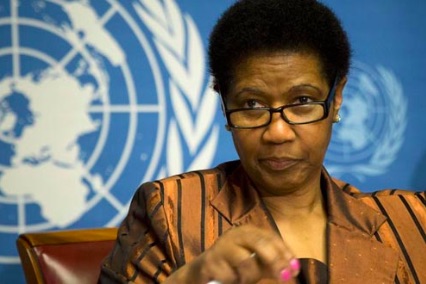
Date: Thursday, October 25, 2018
(As delivered)
It is an honour to address the Security Council and to present the Secretary-General’s report on women and peace and security. I thank Bolivia for all the support they have given us in preparing for this debate
This report is a loud alarm bell on systemic failures to bring women into peacemaking in a meaningful manner.
The trend is, women are being excluded from the peace processes. The ones who do not wage war seem to be disqualified from making peace, while those who may be implicated in making war, seem to find it easier to be at the peace tables.
I together with DPKO, have just come back from a joint UN/AU mission to South Sudan. The women we met there told us how they long for peace and to resume their lives, after nearly five years of suffering from a civil war that they are not responsible for waging. They said, “we are here because we want to reconcile even though we have never quarreled.”
While they still fear for the future, they appreciated the ‘Revitalized Agreement’ on the resolution of the conflict, which offers new hope for the country and an unmissable opportunity to build peace, with a 35 per cent quota for the representation of women.
Their fears are however bolstered by the fact that, in these early days of the revitalized agreement, in the National Pre-Transitional Committee – there is just one woman among the ten persons nominated to be members of the committee, this is not the agreed 35 per cent.
The report today details inescapably how this is not an exception but the rule. How there is at the same time hope for progress, and how we are failing to make it a reality.
But hope is something that we cannot and must never lose.
It shows us undeniable possibilities with undeniable failures, which are costing the lives of women and girls.
They do not wage war, but they die and suffer from it.
A year ago in this chamber, I raised the alarm at the numbers shown by the indicators we track yearly on peace processes and mediation.
Today I want to raise the alarm once more with the hope to jolt us into greater action, as indicators show numbers have stagnated or dropped again.
For that reason, we focused this year’s report on the need for women’s meaningful contribution to peace, and we call on you to take the much-needed concrete actions.
We need you to be vigilant about ending superficial efforts to include women that do not genuinely extend the opportunity to influence outcomes.
We wanted to show that the extreme political marginalization at peace tables is often worse in the institutions set up to implement those agreements.
And we wanted to spotlight the many ways in which women are keep on being active and resilient. They are active in negotiating ceasefires, civilian safe zones, demobilization of fighters, or humanitarian access at the local level, or drawing up protection plans at the community level, like in Syria, Yemen, Afghanistan or the Central African Republic.
We want the UN membership to pay due attention to these dynamics, make them visible in forums like this one, and use them to support the women’s political agency, provide financial resources and enable women to do even more.
The continued tolerance for the limited recognition of women’s expertise and lived experience is a setback for all of us. Statistics on women’s involvement speak for themselves.
Between 1990 and 2017, under our watch, women constituted only two per cent of mediators, eight per cent of negotiators, and five per cent of witnesses and signatories in major peace processes. Only three out of 11 agreements signed in 2017 contained provisions on gender equality, continuing last year’s worrisome downward trend. Of 1,500 agreements signed between 2000 and 2016, only 25 raise the role of women’s engagement in the implementation phase.
In Yemen, current efforts at resuming dialogue do not include women, beyond setting up observer bodies to advise the UN Special Envoy. Even in a consultative meeting in London this summer organized by the UN, convening 22 prominent Yemeni leaders to discuss the peace talks, there were only 3 Yemeni women invited.
In Mali, women average a dismal three per cent of the membership of the multiple national committees set up to monitor and implement the peace agreement.
In the Central African Republic, mediation efforts are focused on the presidency and the 14 armed groups and exclude women altogether.
In Afghanistan, the government and its international partners invest efforts in including women in the High Peace Council and provincial peace councils, but when it comes to actual talks with the Taliban, women’s absence is noticeable.
Undeniably, there are possibilities, but also undeniably there are failures and determined women.
In 23 rounds of Afghanistan-Taliban peace talks between 2005 and 2014, women were at the table just twice. Now that there are offers to resume peace talks without pre-conditions, Afghan women peacebuilders want to be at the table and want to make a difference.
Finally, here is a number that is more positive. Security Council decisions about country-specific or regional situations that contained language on women, peace and security increased from 50 to 75 per cent. This must lead to increased action on the front lines.
The number of women leaders and civil society representatives who briefed the Security Council also increased significantly.
I thank Council members for these efforts and their continued participation in the Informal Experts Group on Women, Peace and Security, currently co-chaired by Sweden and Peru, in collaboration with the United Kingdom.
But we need to use all available diplomatic channels and political influence to ensure that these decisions in New York are making a difference on the ground. This is simply not happening in the most meaningful way.
The bigger picture of gender inequality in conflict and post conflict countries is something we need to continue to watch.
Today’s report gives us a broad picture of the many remaining areas of challenge to reach equal representation of women in the vital processes of our nations.
For example, only 16 per cent of parliamentarians in conflict and post-conflict countries are women – same as last year, and the year before that.
There is 20 per cent representation of women in countries that use quotas and just 12 per cent in countries that do not use quotas. It is for that reason that we appreciate the leading from the front demonstrated by our Secretary-General and call for special measures in the manner in which he is driving the parity process within the United Nations.
This Council just visited the Democratic Republic of Congo ahead of crucial elections. Only 12 per cent of registered candidates are women, just like in the previous elections seven years ago. And women are suffering intimidation.
Of the 17 countries that have elected a woman head of state or government, none are post-conflict countries at this point.
I ask again, as I did last year, we need to heed the call and address the patterns these numbers show us. On our part we will continue to follow up with you on to address this situation with vigilance and make a significant difference.
(continued in right column)
Question for this article
Does the UN advance equality for women?
Prospects for progress in women’s equality, what are the short and long term prospects?
(continued from left column)
It is not only women whose opportunities are being limited. In many conflict settings, girls are one and a half times more likely to be out of primary school and whole communities are set back. The numbers of children lacking education in conflict areas calls for a concrete response and solution, with schools and second chance education.
Child marriage rates are also affected by war. In Yemen, the rate of child marriage was 66 per cent in 2017. It was 52 per cent last year. And 32 per cent before the recent conflict erupted.
Unsurprisingly, but tragically, maternal mortality rates are almost twice the global ratio in conflict and post-conflict countries. Of the 830 women and adolescent girls who die every day from causes related to pregnancy and childbirth, 507 die in countries that are considered fragile because of conflict and disaster.
To address these issues and support the regeneration of families and communities, we need strong and targeted investments in women in conflict areas.
This is just not happening enough, despite undeniable goodwill towards the women peace and security agenda in countries that are affected.
The clear gender inequality in women’s access to resources is not simply caused by the presence of conflict. It is also a reflection of non-prioritization of women’s needs and the relegation of women to small-scale and local peripheral initiatives.
In the Sahel, where we visited with Deputy Secretary-General, the African Union and Minister Wallstrom, we saw the dire poverty of women and communities in the Lake Chad basin.
We saw households with no electricity in a part of the world which has the highest penetration of the sun on earth and is more suitable than anywhere else in the world for sustainable energy generation from solar power.
Yet clinics lack power. Women have no cold storage for their fish and the fresh produce needed for food security—which contributes in some cases even more to peace than the military.
In conflict-affected countries, only 11.5 per cent of landholders are women.
Although bilateral aid to promote gender equality in fragile country situations rose by 17 per cent compared to the previous year, it still only amounts to five per cent of total bilateral aid spent on programmes with gender equality as the primary objective.
In the DRC, for example, aid from OECD-DAC to gender equality was only 8 USD per capita last year. The same year, the UN documented a 56 per cent increase in sexual violence.
The share of the aid channeled through non-governmental women’s organizations has stagnated.
Our financial commitments do not match the extent to which we rely on these groups.
Yes, there has been undeniable progress, because the actions undertaken with civil society continue to be favoured as a way to operate. This must turn into concrete action and better investment in these groups.
Civil society and women’s organizations have been failed in the midst of record-breaking numbers of side events at intergovernmental meetings. Our plea is to refocus our energies and resources. I believe there is goodwill and we all want what is best for women and girls.
While we have disappointing indicators on women and girls, global military spending has reached 1.74 trillionUSD, a 57 per cent increase since 2000. Some countries allocate more public money to the military than to education or health.
Ninety per cent of grassroots women’s organizations working in areas directly impacted by terrorism and violent extremism state that current counterterrorism measures have an adverse impact on work for peace, women’s rights and gender equality.
We must respond to the many violations against the human rights of women and girls within these groups, and to the social stigma, economic hardship and discrimination women and girls experience when returning to their homes and communities when they have been part of violent groups.
These challenges are best addressed by actions that protect and promote the rights of victims and are fundamentally based in human rights law.
Women human rights defenders, who are on the front lines, are fighting a lonely battle. Many die a lonely death from weapons that are meant to protect them.
Let us look ahead with hope, and the knowledge of what we are capable of together.
This includes what we can do with women such as the African Women Leaders Network, which has been given a boost by the support of Germany and has focal points already in more 30 African countries.
We are already gearing up for the 20th anniversary of Security Council resolution 1325, which will be an opportunity to shape the agenda for the next decade with new commitments and priorities.
We have to start now to gear up towards better results.
We need more positive signs such as those I saw in Somalia where we need to help accelerate positive change.
There will be opportunities for everyone to weigh in, including at next year’s meeting of the Women, Peace and Security Focal Points Network in Windhoek, Namibia, which will carry a special symbolism for those that have been in this movement for a while.
For now, I want to share three priorities for 2020.
This August, the world mourned the loss of Kofi Annan. Part of his legacy was that the UN debated and decided to stop supporting peace agreements that included blanket amnesties. I think that, two decades later, it is time for the UN to have a similar conversation about supporting, brokering and paying for peace negotiations that exclude women. This is in your hands. This was raised by women from civil society at the forum this Council was invited to earlier this week, at the initiative of Sweden.
Secondly, one of the many positive examples in the report is the UN Peacebuilding Fund’s steadily growing support to projects advancing gender equality and women’s empowerment.
Finding ways to make the 15 per cent minimum target a reality across all relevant entities and other peace and security funds is a point we can all focus on. Joint programming on rule of law in conflict and post-conflict countries, and addressing educational and Economic resilience, or multi-partner trust funds in fragile settings, should be at the start of all conversations about financing.
And finally, we need to do much more to protect women activists, peacebuilders and human rights defenders in conflict-affected countries. We applaud the historic participation of a Palestinian woman representing civil society in addressing this Security Council for the first time.
We commend the Nobel Committee’s recognition to Denis Mukwege and Nadia Murad for their advocacy on behalf of victims of wartime sexual violence. It is an example of the importance of this issue, to which my esteemed colleague SRSG Pramila Patten devotes all her time and energy.
I met many exceptionally courageous women in my recent travels to Somalia, South Sudan, the Sahel and the Rohingya refugee camps in Bangladesh.
Many of them are here today. But many could not be here.
In 2017, half of the women honoured in the annual tribute of the Association for Women in Development were murdered in conflict affected countries.
But the list is much longer when we include women political leaders, journalists, justice actors and security sector personnel, and those perceived to be LGBTI or who challenge traditional gender roles simply by their involvement in public life.
It is my strong wish that we will find the political will to do much more about this epidemic of killings of women over the next decade than we have in this past one.
Change is within our hands. Let us work for positive indicators for the next report and let us make sure that next Secretary-General’s report will be able to show that we are turning the corner.
Thank you.
